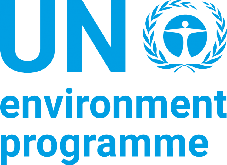Quito, Ecuador, is celebrating the first UN International Day of Clean Air for blue skies with the conviction that improving air quality is the responsibility of all people, and that governments must provide a way for people to achieve this goal.
This first day also comes in the context of a crucial moment for humanity. It is essential to take clear action to improve air quality, especially because air pollution may exacerbate the COVID-19 pandemic.
In response to the COVID-19 crisis, the Municipality of Quito is adding bike lanes to promote alternative transportation, which also promotes social distancing, and minimizes the number of passengers in public transport.
The city is also working to decarbonise its transport infrastructure by promoting clean mobility technologies in the Metropolitan District of Quito. In particular by the transition to electric vehicles.
A draft Ordinance was written to establish technical rules for installing battery recharging infrastructure in public and private parking lots, the planning requirements for the replacement of the public transport fleet, and to outline the benefits of investing in this type of activity.
The Ordinance also defines access points into the emission-free zone of Historic Downtown Quito, which has several blocks of pedestrian streets and was declared by UNESCO as Cultural Heritage of Humanity in 1987. Traffic restrictions in this zone only allow public transport and taxis with zero-emission technology. This has led to a considerable decrease in emissions and improved air quality.
Currently, different city entities are working together to put in place bike lanes, widen sidewalks and establish dedicated public transport only zones.
Shutdowns put in place during the COVID-19 pandemic, saw air pollution emissions decrease between 30% and 70% in the city. This resulted in several weeks with optimal air quality, within the values of the World Health Organization Guidelines. This drop-in pollution allowed many city residents to see the possibility of meeting the challenge of keeping Quito's air within World Health Organization guidelines. The city is now considering maintaining stricter mobility restrictions than those before the pandemic with the "Hoy no Circula" (No Driving Today).
The efficacy of these actions has been evaluated by the Metropolitan Network of Atmospheric Monitoring of Quito (REMMAQ), which provides high-quality online information that the public can access. REMMAQ also generates high-level air research with colleagues from national and international organizations such as The Climate Leadership Group (C40), United States Environmental Protection Agency (EPA), The World Resources Institute (WRI) and the National Aeronautics and Space Administration (NASA). This network allows Quito to show real-time air quality conditions, with 9 automatic stations that monitor the effect of the applied policies. The quality of the information generated by REMMAQ is based on a quality system framed by criteria and regulations of the World Health Organization.
The city is taking strong actions to improve air quality and make Quito green again. These include:
• Continuous improvement of Quito’s air quality monitoring network;
• Promotion of clean transportation systems such as metro, electric buses;
• Growth and promotion of the bicycle lane network;
• Creating low emission zones, such as Quito Historical Center;
• Creating Quito’s Climate Action Plan;
• Natural areas conservation and reforestation projects;
• Controlling mining activities; and
• Compulsory automatic monitoring of industry-related emissions
This story was submitted by the Environmental Secretariat of Quito, Ecuador. Non-UNEP stories highlighted here have been communicated to the United Nations Environment Programme (UNEP) by external partners in support of the International Day of Clean Air for blue skies and are shared here as a courtesy. UNEP is not responsible for the content. Inclusion here is not meant to be construed as an endorsement of the stories or the content therein.
